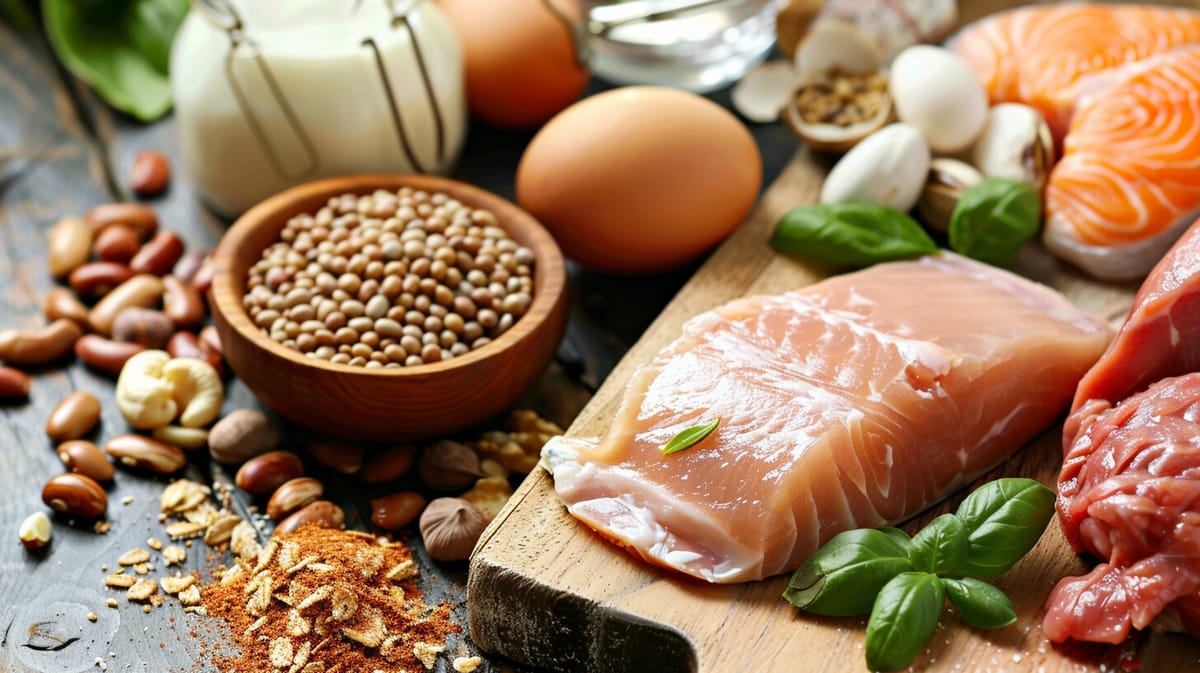Unlock the Power of Protein: Essential Tips to Optimize Your Health

Introduction
Protein is often associated primarily with muscle building, but its importance extends far beyond just that. This versatile nutrient plays a crucial role in numerous bodily functions, making it essential for everyone, not just athletes or bodybuilders. Understanding how much protein you need, the best sources to obtain it, and how to incorporate it into your diet can significantly enhance your health and wellbeing.
Why is Protein So Important?
1. Building and Repairing Tissues: Protein is fundamental in building and repairing tissues, including muscles, skin, and organs. It acts as a building block for bones, muscles, cartilage, skin, and blood.
2. Enzymes and Hormones: Proteins are involved in creating enzymes and hormones that regulate body processes. These proteins help in digestion, metabolism, and hormone regulation which are crucial for maintaining homeostasis.
3. Oxygen Transportation: Hemoglobin, a protein found in red blood cells, transports oxygen throughout the body, ensuring that all your cells receive the oxygen needed to function effectively.
4. Immune System Support: Antibodies, which are proteins themselves, help fight off infections, keeping the immune system robust.
Determining Your Protein Needs
The amount of protein you need can vary based on your age, sex, level of physical activity, and overall health. General guidelines suggest:
- Adults: The Recommended Dietary Allowance (RDA) for protein is 0.8 grams per kilogram of body weight. This baseline covers the basic needs of the majority of the adult population.
- Athletes: Those engaged in regular intense physical activity might need 1.2 to 2.0 grams of protein per kilogram of body weight. This increased need supports muscle repair and growth.
- Older Adults: As muscle mass naturally decreases with age, a higher protein intake might be beneficial to preserve muscle mass and strength, potentially ranging from 1.0 to 1.5 grams per kilogram of body weight.
Best Sources of Protein
1. Animal Sources: These are considered 'complete' proteins because they contain all nine essential amino acids. Options include meat, fish, poultry, eggs, and dairy products.
2. Plant-Based Sources: Many plant-based proteins such as legumes, nuts, and seeds are 'incomplete' proteins because they lack one or more of the essential amino acids. However, eating a varied plant-based diet can ensure that you get all the necessary amino acids.
Strategies to Increase Protein Intake
1. Start with Breakfast: Incorporate protein-rich foods into your breakfast. Options include yogurt, eggs, protein shakes, or oatmeal with nuts and seeds.
2. Snacks on Protein: Opt for snacks that offer a protein boost like Greek yogurt, a handful of almonds, or a protein bar. These will keep you fuller for longer and help maintain muscle mass.
3. Combine Plant Proteins: Combine different plant-based protein sources like rice and beans to make sure you're getting a complete protein profile.
4. Use Protein Supplements: If you find it challenging to meet your protein needs through diet alone, consider supplements like whey protein or plant-based protein powders.
Conclusion
Protein is a vital part of the diet that supports numerous body functions and helps maintain overall health. Whether you're an athlete, bodybuilder, or someone just trying to maintain a healthy lifestyle, understanding your protein needs and how to meet them can help you reach your health and fitness goals. Remember, it's essential to tailor your protein intake to your specific needs and lifestyle for optimal health benefits.


